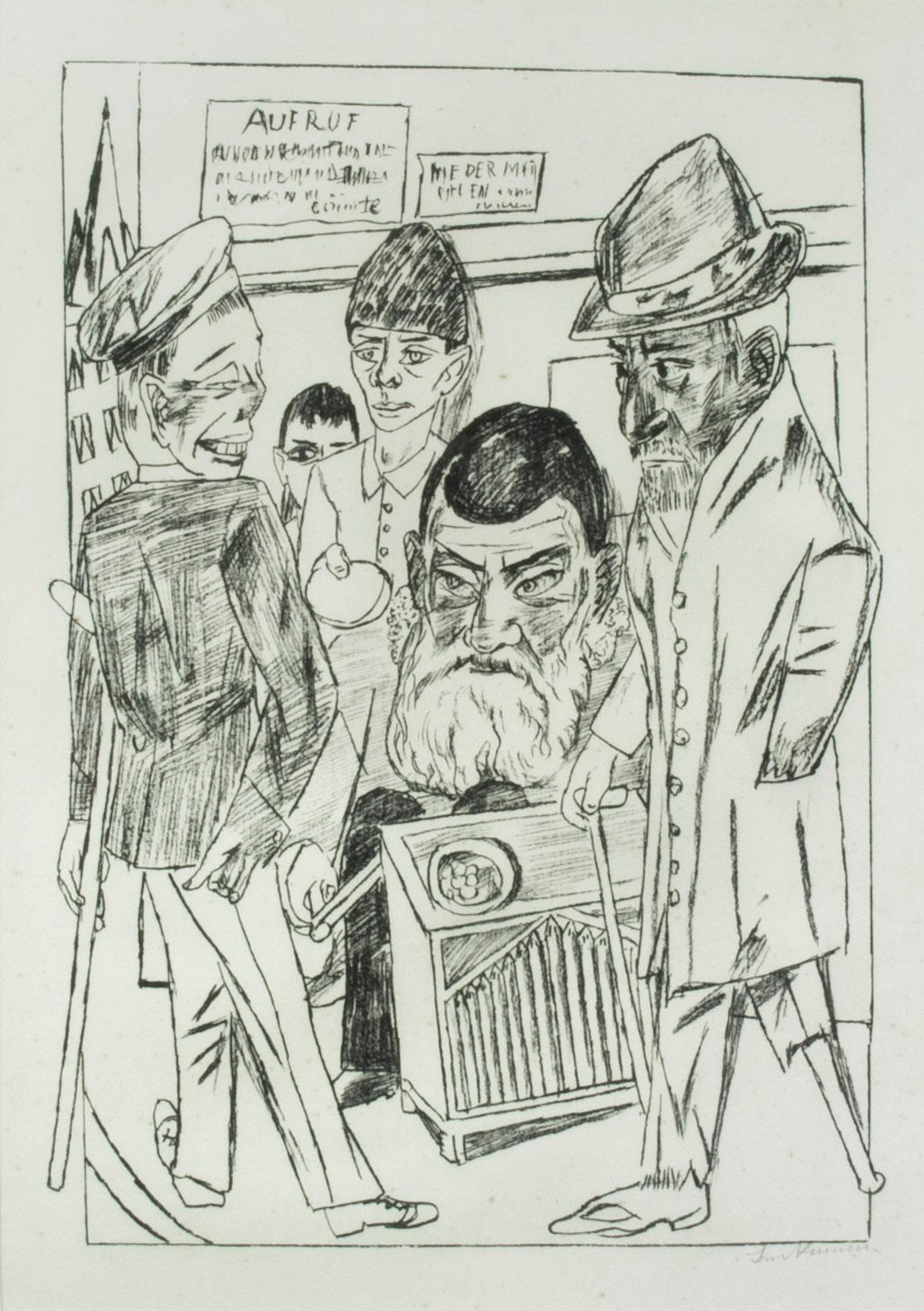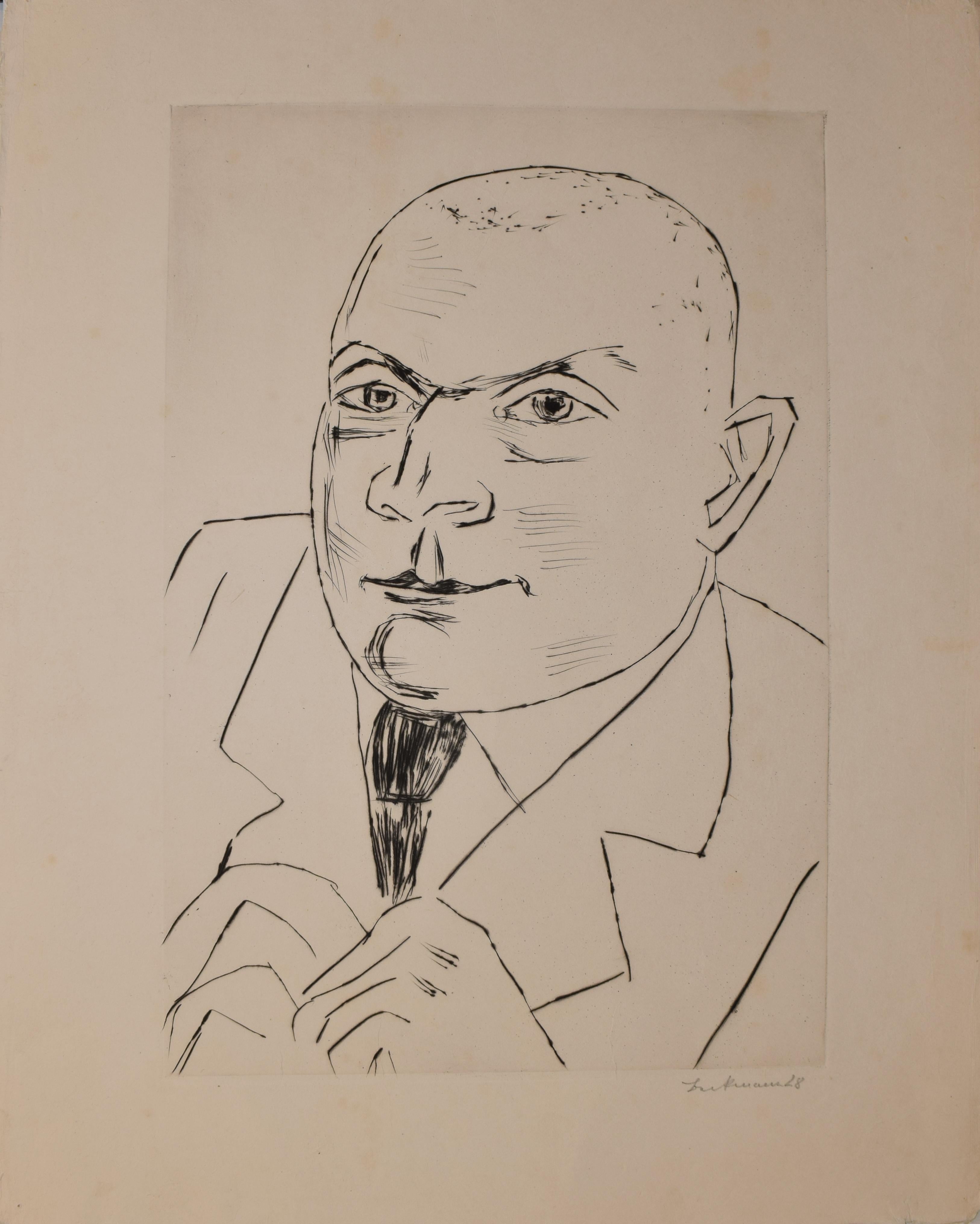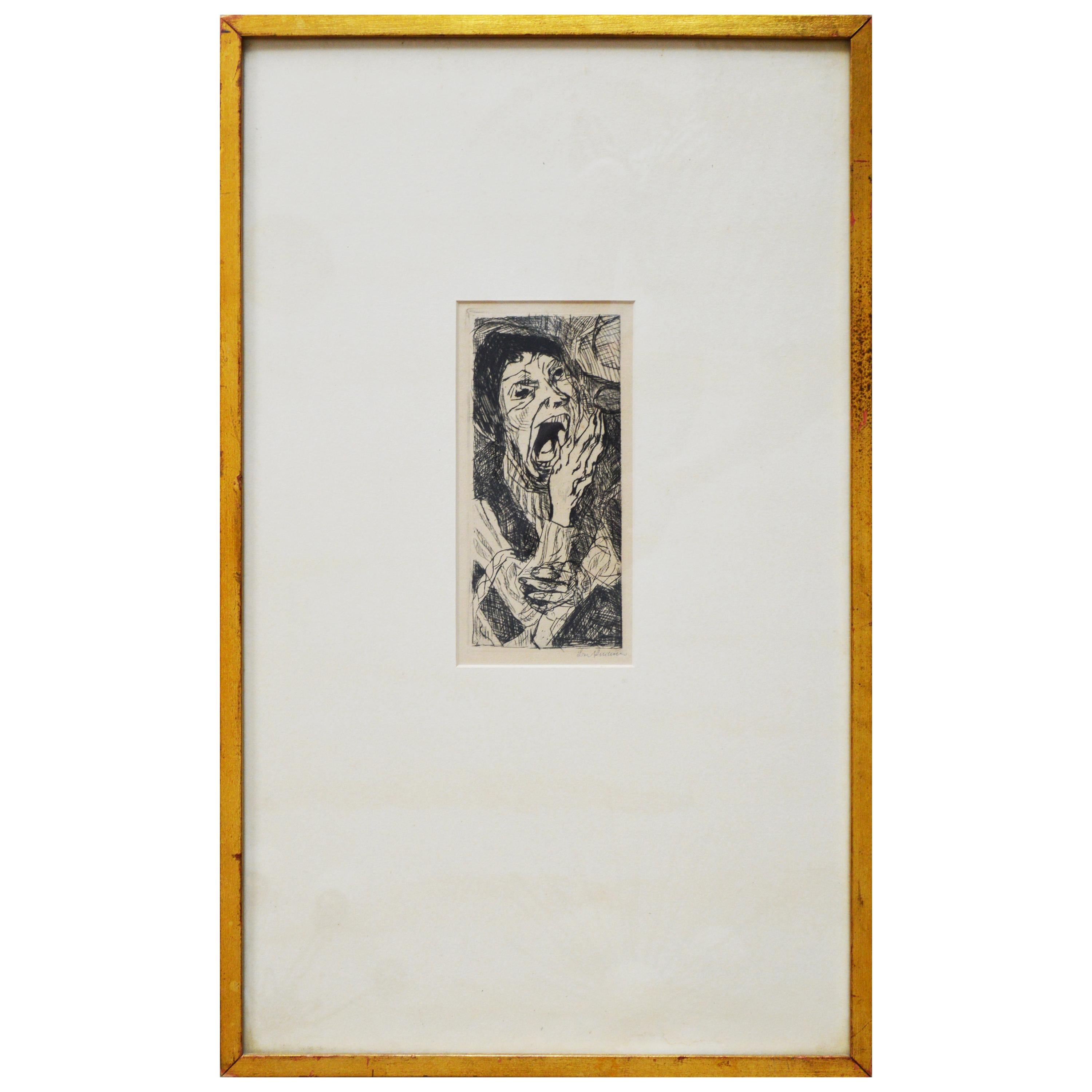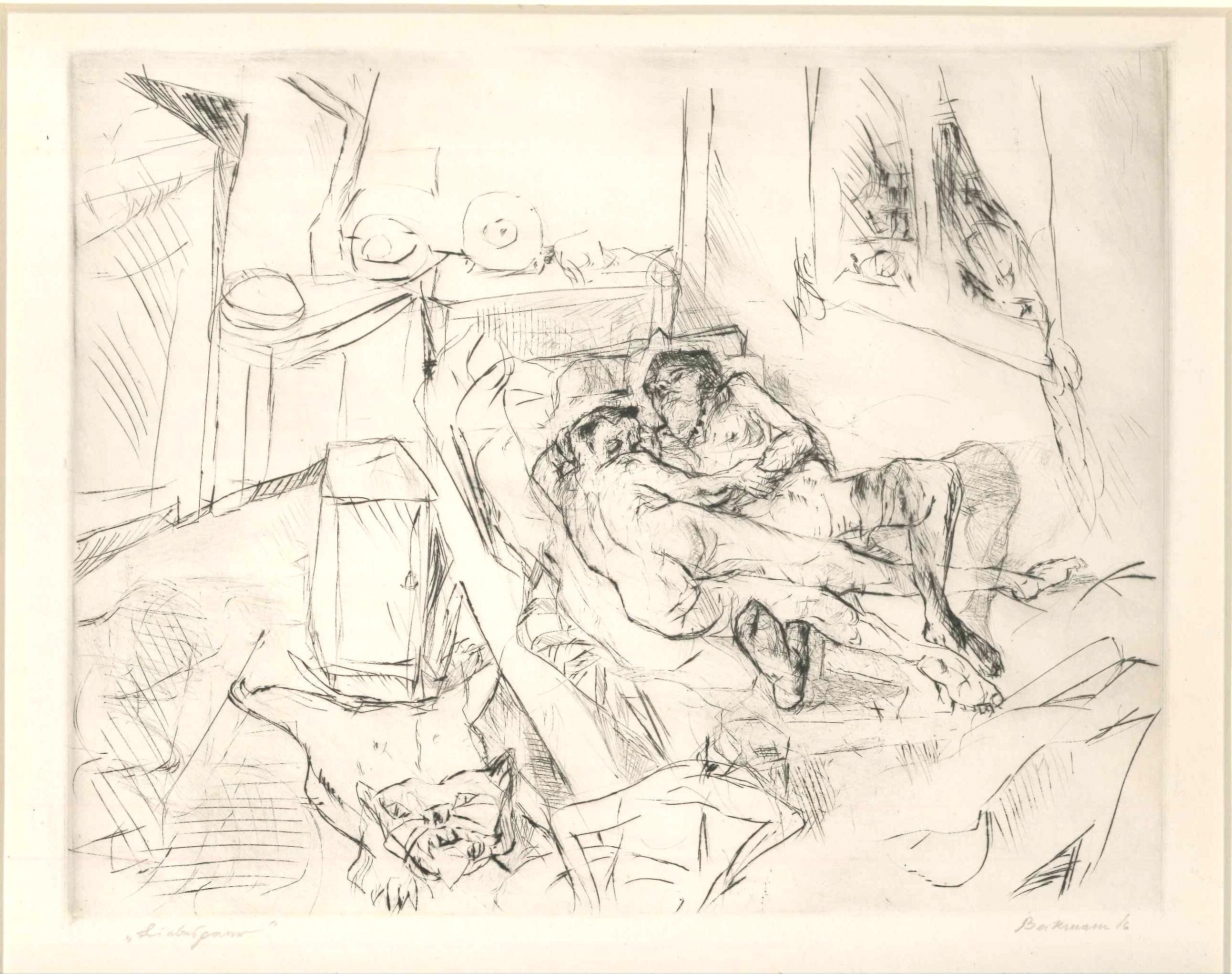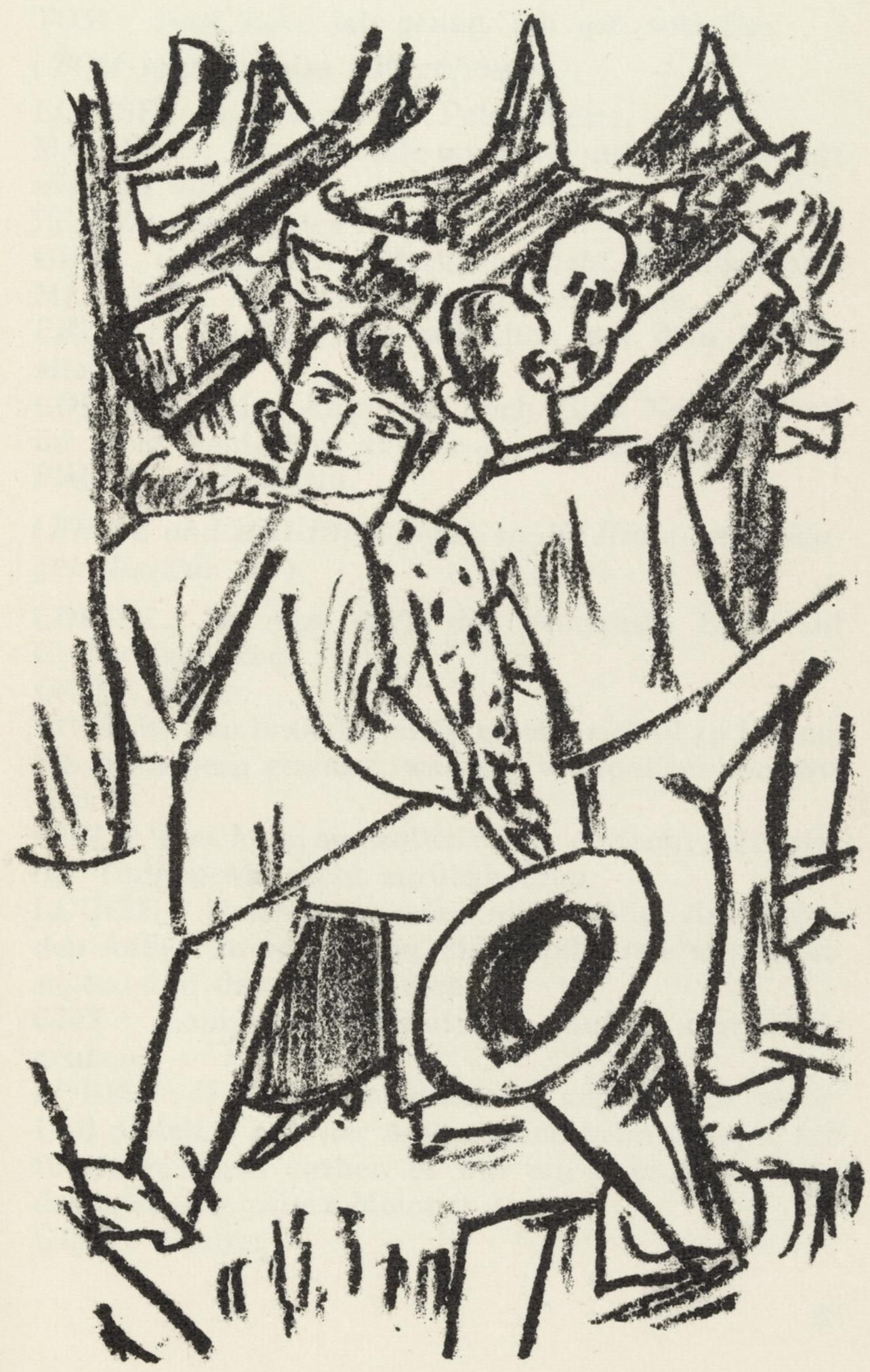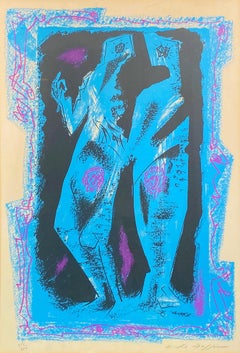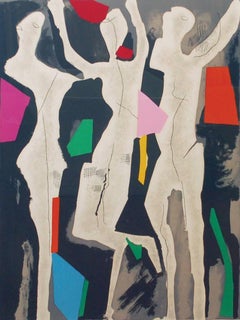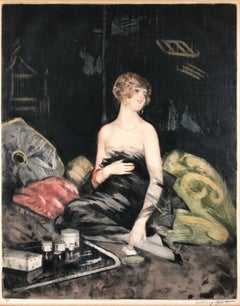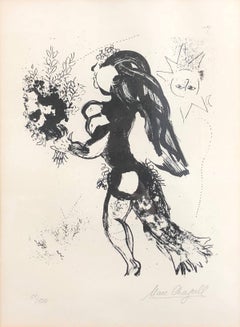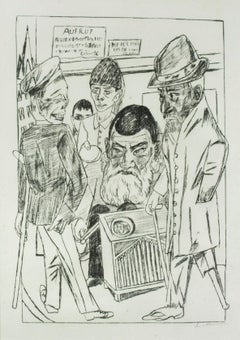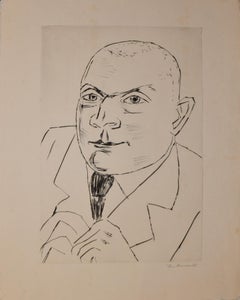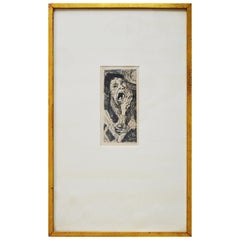Items Similar to Max Beckmann Retrospective (The Saint Louis Art Museum Sept 7-Nov. 4, 1984)
Video Loading
Want more images or videos?
Request additional images or videos from the seller
1 of 12
(after) Max BeckmannMax Beckmann Retrospective (The Saint Louis Art Museum Sept 7-Nov. 4, 1984)1984
1984
$750
£573.76
€659.89
CA$1,071.10
A$1,180.64
CHF 610.04
MX$14,113.71
NOK 7,674.32
SEK 7,212.77
DKK 4,928.77
About the Item
This is a vintage museum exhibition poster from the Max Beckmann Retrospective at the Saint Louis Art Museum, 1984.
Max Beckmann was a German Expressionist painter worthy of inclusion in a great tradition - the tradition of anguished German mysticism, which first flowered in the Middle Ages. His highly personal style reflected the misery of contemporary events in Germany.
Beckmann was born in Leipzig in 1884, the youngest of three children. His father, a grain merchant, died when Beckmann was only ten years old. By the age of fifteen, after several years of boarding school and over his family's objections, he decided that his destiny lay as a painter. After failing the entrance exam for the Konigliche Akademie der Bildenden Kunste in Dresden, he was accepted by the Grossherzogliche Sachsische Kunstschule in Weimar in 1900. The School provided him with an academic art education, whereby he learned to draw from antique sculpture as well as from live models. At school, he met Minna Tube, a fellow artist whom he married in 1906 and who gave birth to his only child, Peter.
As a prosperous young man, working in the years before World War I, Beckmann was hardly a radical. He distrusted some of the young German expressionists (he called their work poster-painting) and achieved critical success with a conservative style based on impressionism. He was immensely ambitious. He wanted nothing less than to find a modern way to paint in the grand style of traditional history painting. Yet he also had a powerful expressionist streak.
Beckmann was already a success at the age of thirty when World War I broke out. He loved the street-scene turmoil and crammed his major canvases with crowds of jostling, uncongenial characters. To avoid killing, he volunteered for the medical corps and spent a year during World War I as a medical orderly; he had a nervous breakdown, and it strengthened his art. Having once viewed life as a kind of theatre, staged for the benefit of his art, he now threw himself into a furious personal struggle with the world. After the war, Beckmann portrayed city life and cafe society with mordant grace. During the 1920s he began to develop his mature style. He turned toward symbol, allegory and myth; in triptychs of the 1930s and 40s he investigated themes of freedom and constraint, the existential dilemmas of the modern artist, and the struggle between the sexes.
In 1925, Beckmann was appointed to teach in Frankfurt, a position he held until 1933. That same year, he divorced Minna Tube and married Mathilde (Quappi) von Kaulbach, who became the subject of many of his important paintings. The following year, he had his first solo exhibition in the United States, at J. B. Neumann's New Art Circle gallery in New York, thereby expanding his reputation in the international art community.
During this period Beckmann's style became richer and more complex. The example of Cezanne helped him invest his pictures with a strong linear architecture; he developed, in particular, a beautiful way with thick black lines, which gives his pictures the sluggish power of hot pitch. The example of Matisse (who used black so well) no doubt helped Beckmann master the rhythm between his increasingly lush colors. His light, in turn, became very odd. Many paintings, whatever the indication of shadow, seem lit from behind: the backlighting, the rich color and the strong black lines give some works the sturdy, but spiritual, luminosity of stained glass.
Beckmann worked in this style until the end of his life - despite increasing repression by the Nazis, since he had been branded by Hitler himself as a "degenerate painter". This prompted his immigration to Amsterdam in 1937, and in 1947 to the United States, where he taught at Washington University in St. Louis, in Brooklyn, and at Mills College in Oakland, CA. Unlike most expressionists, he did not burn out young, perhaps because he had never been just an expressionist. He sometimes painted gentle portraits and beguiling landscapes. He took pleasure in sweet as well as sour color, he favored a certain grim whimsy. His criticism is directed less at this person or that political system than at life itself. Although he himself was never an abstract painter, the New York school of abstract expressionism owes much to him for his unflagging insistence on directness and violence.
Some observers find Beckmann's enigmatic iconography a distraction from the purely visual pleasure of art. He was an artist who resolutely cast his work in a heroic mode. The self-portrait was something of a specialty with Beckmann; in them there is also an uncanny vitality and force of character.
Two days after Christmas 1950, while on a morning walk in Manhattan's Central Park, Beckmann suffered a fatal heart attack.
- Creator:(after) Max Beckmann (1884 - 1950, German)
- Creation Year:1984
- Dimensions:Height: 36 in (91.44 cm)Width: 24 in (60.96 cm)
- Medium:
- Movement & Style:
- Period:
- Condition:
- Gallery Location:Missouri, MO
- Reference Number:1stDibs: LU74732380101
About the Seller
5.0
Vetted Professional Seller
Every seller passes strict standards for authenticity and reliability
Established in 1970
1stDibs seller since 2017
155 sales on 1stDibs
Typical response time: 1 to 2 days
- ShippingRetrieving quote...Shipping from: Missouri, MO
- Return Policy
Authenticity Guarantee
In the unlikely event there’s an issue with an item’s authenticity, contact us within 1 year for a full refund. DetailsMoney-Back Guarantee
If your item is not as described, is damaged in transit, or does not arrive, contact us within 7 days for a full refund. Details24-Hour Cancellation
You have a 24-hour grace period in which to reconsider your purchase, with no questions asked.Vetted Professional Sellers
Our world-class sellers must adhere to strict standards for service and quality, maintaining the integrity of our listings.Price-Match Guarantee
If you find that a seller listed the same item for a lower price elsewhere, we’ll match it.Trusted Global Delivery
Our best-in-class carrier network provides specialized shipping options worldwide, including custom delivery.More From This Seller
View AllDeux Personnages
By André Masson
Located in Missouri, MO
Signed Lower Right
Numbered Lower Left 166/200
Framed Size: 33 x 25 inches
Andre Masson was born in Balagne, France on January 4, 1896. He was an engraver, sculptor, stage designer...
Category
1960s Modern Figurative Prints
Materials
Lithograph
Price Upon Request
Personnages De Sacre Printemps V
By Marino Marini
Located in Missouri, MO
Color Lithograph
Signed and Numbered Ed. 75
Marino Marini (February 27, 1901 — August 6, 1980) was an Italian sculptor.
Born in Pistoia, Marini is particularly famous for his serie...
Category
1970s Modern Figurative Prints
Materials
Lithograph
In the Boudoir
By William Ablett
Located in Missouri, MO
Aquating Engraving
Image Size: Approx 19 x 15.5
Framed Size: Approx. 28.5 x 24.5
William Albert Ablett (1877 - 1937)
Although born to English parents, William Ablett lived in Par...
Category
Early 20th Century Art Deco Figurative Prints
Materials
Engraving, Aquatint
Price Upon Request
L'Offrande (Signed and Numbered)
By Marc Chagall
Located in Missouri, MO
Lithograph on Arches Paper
Pencil Signed Lower Right, "Marc Chagall"
Numbered Lower Left Ed. 51/100
Published by CH. SORLIER
SIte Size: 19 x 12.5
Framed Size: approx 27.5 x 22.5
Category
1960s Modern Figurative Prints
Materials
Lithograph
Price Upon Request
Devant le Tableau (Signed and Numbered)
By Marc Chagall
Located in Missouri, MO
Lithograph on Arches Paper
Pencil Signed Lower Right, "Marc Chagall"
Numbered Lower Left Ed. 9/40, one of 40 impressions reserved for the artist aside from the standard signed editio...
Category
1960s Modern Figurative Prints
Materials
Lithograph
Price Upon Request
Profil Rose
By André Masson
Located in Missouri, MO
Signed Lower Right
Numbered 61/200
Sight Size: 27.5 x 21.5
Framed Size: 31.5 x 24.5
Andre Masson was born in Balagne, France on January 4,1896. He was an engraver, sculptor, stage d...
Category
1960s Modern Figurative Prints
Materials
Lithograph
Price Upon Request
You May Also Like
Die Bettler (The Beggars)
By Max Beckmann
Located in Fairlawn, OH
Die Bettler (The Beggars)
Lithograph, 1922
Signed in pencil lower right (see photo)
From: Berliner Reise Series, Plate 7
Printed on wove paper
Edition: 100...
Category
1920s Expressionist Figurative Prints
Materials
Lithograph
Portrait of Baron Simolin II (large version)
By Max Beckmann
Located in Roma, RM
Max Beckmann (Leipzig 1884 – New York 1950), Portrait of Baron Simolin II (large version)(1928)
Drypoint, 38 x 25 cm (plate), 48 x 40 cm (sheet), signed and dated lower right.
Category
1920s Expressionist Portrait Prints
Materials
Drypoint
Spring (Fruling) (also known as Street in Frankfort)
By Max Beckmann
Located in New York, NY
Max Beckmann, Spring (Fruling) (also known as Street in Frankfort), etching and drypoint, 1918, signed lower right. Reference: Hofmaier 133IIb, from the edition of 60 on laid paper; ...
Category
1910s Expressionist Landscape Prints
Materials
Drypoint, Etching
Max Beckmann Signed "Strasse II" 1916 German Expressionist Framed Drypoint Print
By Max Beckmann
Located in St.Petersburg, FL
Max Beckmann (German, 1884-1950) German Expressionist
Date: 1916
Medium: Drypoint etching
Dimensions:
Plate - 3 5/8” x 7 5/8” (~9.2 x 19.4 cm)
Sheet - approx. 10” x 16.5” (~25.4 x 41.9 cm)
Framed - 15” x 24” (~38 x 61 cm)
Paper: Cream, slightly textured (BSB). Stamped and embossed BSB Publisher: Probably Verlag Graphisches Kabinett Gu¨nther Franke, Munich (stamped Graph. Kabinett Mu¨nchen)
Edition: Unknown
Techniques: Intaglio
Provenance: Estate of former Ringling College of Art and Design professor
A wonderfully chilling Expressionist print by German master Max Beckmann, from his early period during mid-World War I. The print is a section plate...
Category
Vintage 1910s German Expressionist Prints
Materials
Paper
Liebespaar I - Etching and Drypoint by Max Beckmann - 1916
By Max Beckmann
Located in Roma, IT
Etching and drypoint. Signed and dated in pencil.
Extremely rare artist's proof, II state on 2 A/C variant, before the editions Marées-Gesellschaft R. Piper & C. Printed in 1919 by ...
Category
1910s Modern Nude Prints
Materials
Drypoint, Etching
Beckmann, Composition (Hofmaier 323-329), Der Mensch ist kein Haustier (after)
By Max Beckmann
Located in Southampton, NY
Lithograph on Van Gelder Zonen Bütten paper. Inscription: Unsigned and unnumbered, as issued. Good condition. Notes: From the volume, Der Mensch ist kein Haustier, 1937. Published by...
Category
1930s Modern Figurative Prints
Materials
Lithograph
$1,036 Sale Price
58% Off
Free Shipping
More Ways To Browse
Saint Louis Vintage
German Expressionist Poster
Pamela Bianco
Paolo Toschi
Paris Street Scene Lithograph
Paul Stewart
Pe Felix
Peter Mats
Peter Max 1971
Peter Max 1973
Picasso Ecuyere
Picasso Farol
Picasso Lithograph Bathers
Picasso Lithograph Couple
Picasso Marlborough
Picasso Pencil Signed
Picasso Plates Signed
Picasso Series 156
